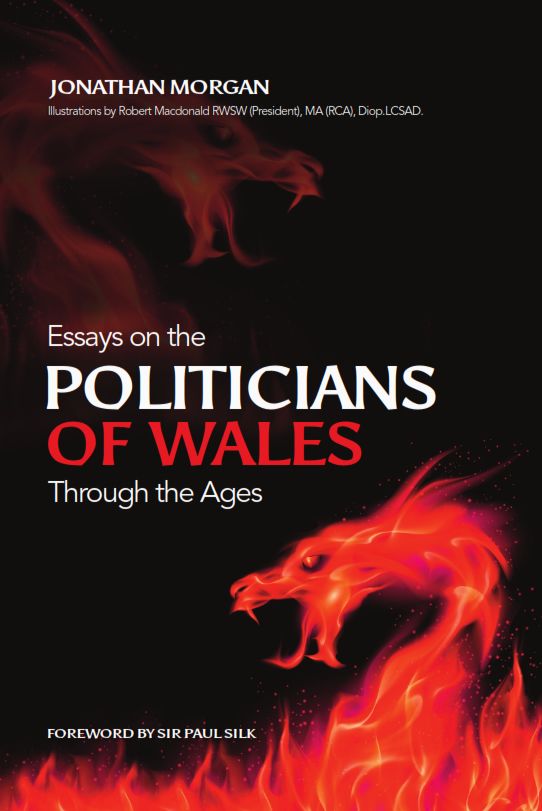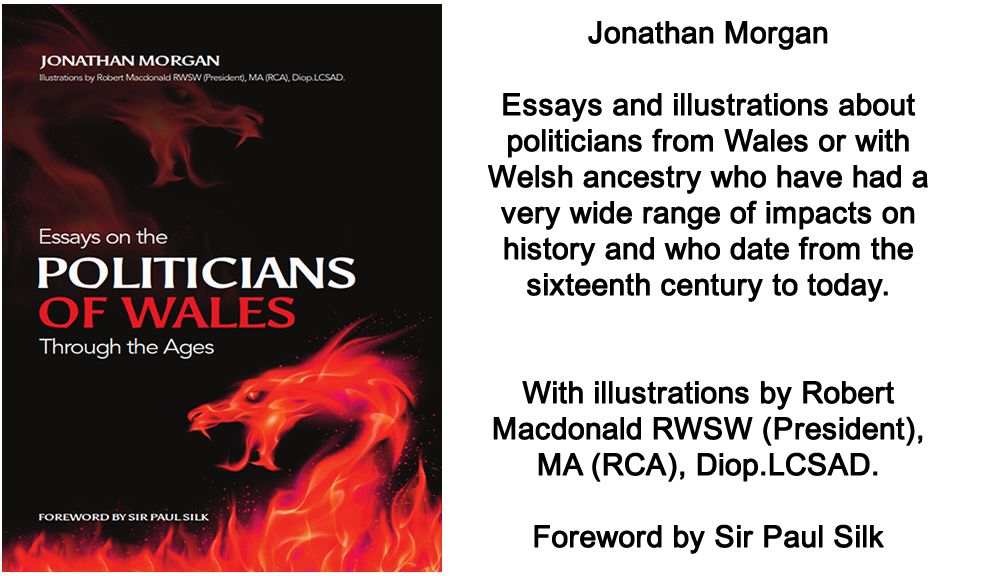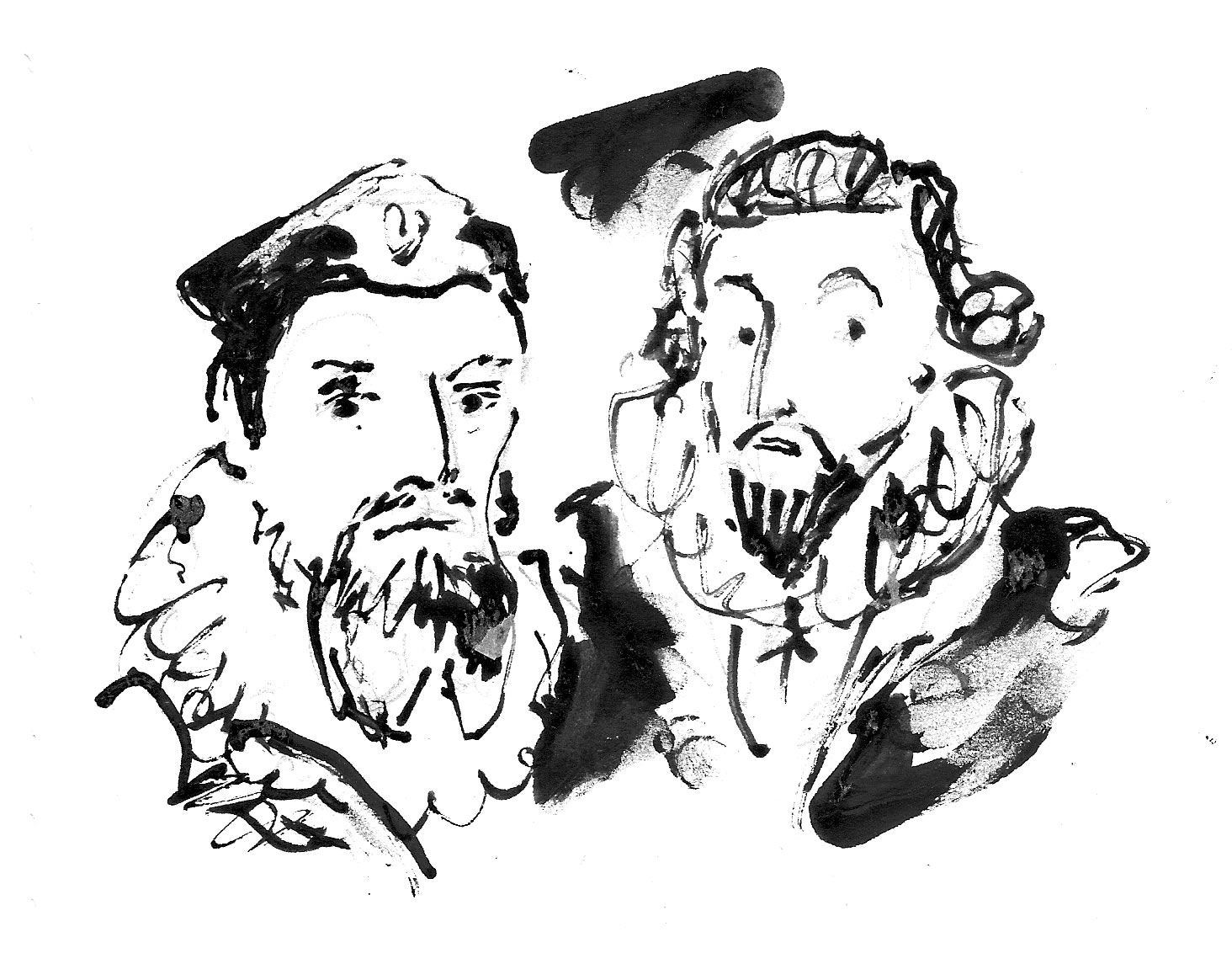OLIVER CROMWELL formerly WILLIAMS
Although Oliver Cromwell only visited Wales twice, once to suppress several thousand of its rebellious inhabitants, then once en route to Ireland, he was, by descent, a Welshman.
Much was made under the protectorate under a heraldic point of view, of Cromwell's descent from the Princes of Powys. Cromwell's forebears were a very typical minor Welsh gentry family; they were said to be a brewing family from Glamorgan, and his great great grandfather was Morgan Williams who emigrated to England. Eventually a change of surname was made to Cromwell, partly to curry favour with the infamous maternal uncle Thomas Cromwell.
Henry VIII disapproved of the 'aps' which made those of Welsh descent hard to identify in English judicial procedure and insisted on family names of a more substantial kind. Oliver's grandfather Henry Cromwell had been dubbed Knight by Queen Elizabeth I in 1563. By the 1600s the family had moved to Huntingdonshire but did not forget their Welsh heritage. In the magnificent house at Hinchinbroke, a family seat of much splendour, the stained-glass windows did not fail to commemorate the family's Welsh origins. In fact, when he was Lord Protector, Oliver was said to sign papers 'Cromwell born Williams'. The family commissioned family trees reaching back to ancient Welsh Princes, and as mentioned, filled their windows with heraldic glass showing their Welsh connections.
In the English Civil War Cromwell became one of the Parliamentarians greatest commanders. He was particularly good at commanding cavalry, and time and again when he, having defeated the opposite Royalist wing of cavalry, brought his troops round in good order to attack the Royalist centre. Whereas Prince Rupert would engage in ferocious charges, often defeating the opposite wing but his troops did not have the discipline to prevent rout, rape and pillage which took their minds off the battle. Cromwell again was highly instrumental in forming the New Model Army and imposing on it professional discipline. After the defeat of the King, his aggressive foreign policy and support for trade were praised unreservedly. Carlyle in his letters and speeches on Oliver Cromwell established that Cromwell was not, in the normal sense of the words, either ambitious or a hypocrite. When he took over, the country was trembling on the brink of democracy; he prevented a new autocracy with the King claiming divine right. He was often exasperated by Parliament, and although on the Puritan wing, had a healthy respect for those of independent conscience.
In 1648 he became a major Welsh landowner, taking lands from the Royalist Earl of Worcester. These included large estates in Monmouthshire and virtually all of the Gower peninsular. There is some evidence that Cromwell used these lands to support likeminded friends and associates and to drive forward the Puritanisation of a country that many saw as mired in religious ignorance. A project that was particularly close to Cromwell's heart was a commission for the propagation of the gospel in Wales 1650-1653. This was a state sponsored body which supported radical Puritans in their efforts to convert the people of Wales to a more reformed brand of Protestantism. Here was a Welsh hero working against religious ignorance and apathy in an effort to raise the spiritual condition of the beloved benighted country. A pamphlet from hundreds of Cromwell's Welsh supporters in 1656 praised 'His most Christian and favourable understanding of us, the poor saints of Wales who are so much your joy'.
After the Revolution, the King was no longer able to hold a position of supreme power over Parliament. Cromwell played a leading part in bringing Charles I to the scaffold. He tried to be the mediator between Charles and the army, but inevitably came down on the side of the army. Surprisingly, because of his democratic attitude to his troops, he opposed demands for manhood suffrage. He was never quite sure if his main duty was to the people of England or to the people of God. He was far more tolerant than most men of his time and class. Only in his intolerance to the Irish Papists did Cromwell fail to rise above the standards of his age.
Outside the army, he was fêted by the Radicals. He owed his position to the army, which he could never, as a last resort, break from. Oliver's real tolerance did not extend to Papists. The massacres of Drogheda and Wexford, were laid at Cromwell's door. There were few mitigating circumstances. He followed the maxim of 'Trust in God and keep your powder dry'. He believed God intervened directly in history. His theory of government always aimed towards that which was ultimately established in 1688. He struggled for that settlement in his own time. The Puritan revolution under him failed, but there were economic, political and constitutional revolutions that took place. His tolerance extended to the Jews, but after the Restoration and his death, his corpse was solemnly exhumed from Westminster Abbey. It was dragged through the streets of London from Holborn to Tyburn on open hurdles. The body was hung up in full gaze of the public, then taken down and the common hangman proceeded to hack off it's head. The headless trunk was consigned into a deep pit dug beneath the gallows of Tyburn and the head was taken down to Westminster and five days later stuck on a pole of oak where it mouldered in a state of decomposition until 1684. The story goes that it was blown down in a monster gale at the end of the reign of James II, falling at the feet of one of the sentinels. The skull was picked up by a man who hid it under his cloak, and it eventually passed into the hands of a dissolute and drunk actor called Samuel Russell and was later acquired by James Cox, proprietor of a museum. He in turn sold it to speculators who exhibited it at the time of the French Revolution. It eventually came into the hands of Canon Wilkinson, who left it to Cromwell's old College of Sidney Sussex. Cromwell's statue stands outside the Houses of Parliament in a very prominent position. He became a dictator but he lay the foundations of a future Parliamentary democracy. So, in a way, he is a Parliamentary hero.
He was the far-sighted politician whose bold revolution fatally undermined the power of the monarchy and set the country on the road to a modern constitution. The humble champion of individual liberties against oppression by the mighty; the advocate of toleration who readmitted Jews to England after more than 350 years of exile.
Paradoxically he never exercised his democracy in Ireland, where he is remembered for his cruelty and unforgiving religious discrimination. He was hated in Ireland for generations and remains so. It is a pity that a man with such democratic credentials should have let himself down in this way.







